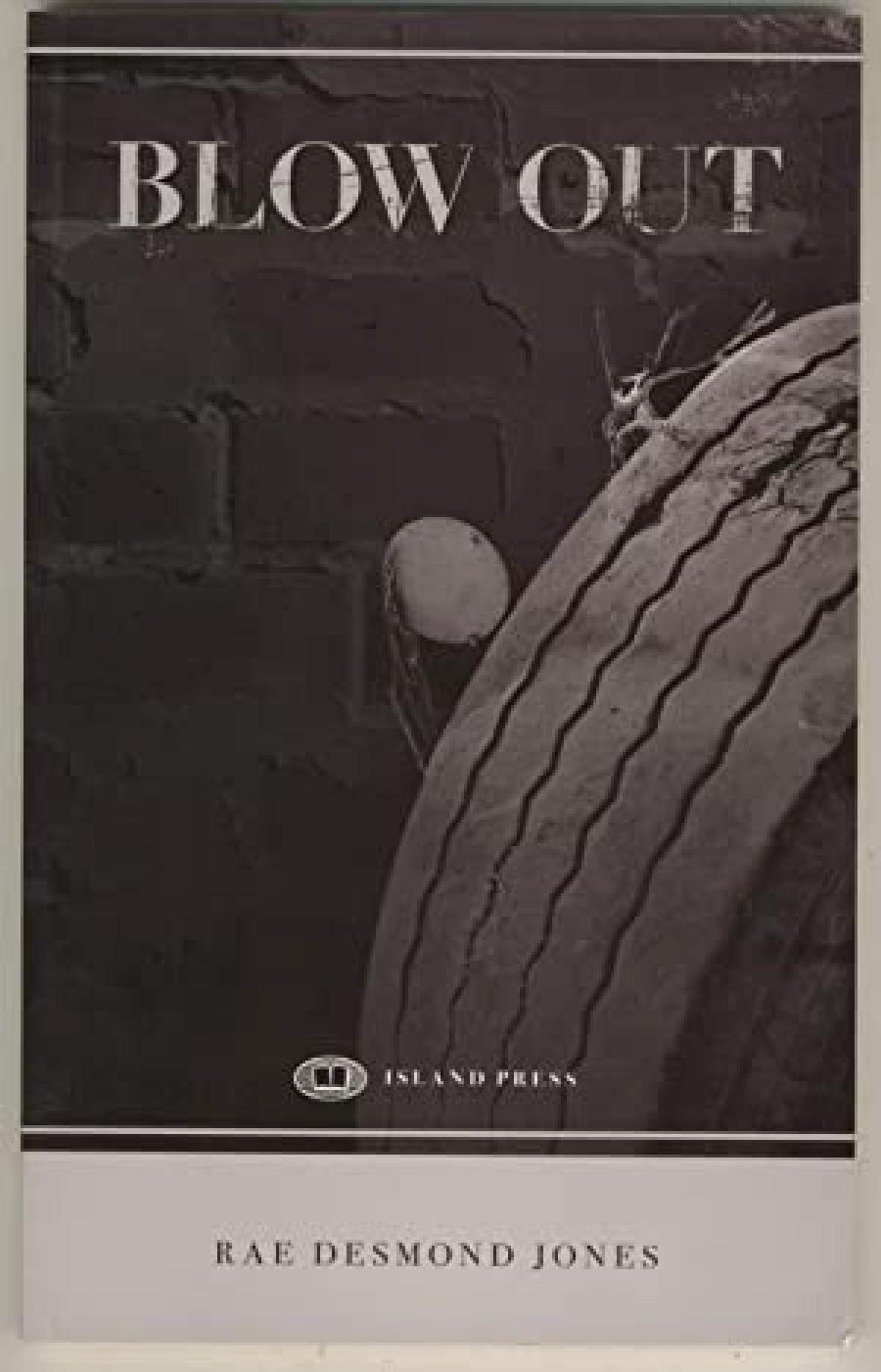
- Free Article: No
- Contents Category: Poetry
- Review Article: Yes
- Online Only: No
- Custom Highlight Text:
Blow Out is Rae Desmond Jones’s first collection of poetry, punctuated by novels and plays, since The Palace of Art (1981). His prominence during the 1970s is evinced by his publishing four books of poetry within eight years and by his inclusion in John Tranter’s The New Australian Poetry (1979). This is a long silence, but Jones, now in his late sixties, has filled it with political activism, serving as mayor of Sydney’s Ashfield Council from 2004 to 2006. So much for unacknowledged legislators.
- Book 1 Title: Blow Out
- Book 1 Biblio: Island Press, $20 pb, 72 pp
Jones has a sharp eye for telling detail and a fine, if inconsistent, sense of a poem’s balance. He also possesses a dark, vivid sense of humour, as in the black jesting of ‘Baygone’, with its covert, lyrical and disproportionate threat to ‘obsequious termites’ and ‘German cockroaches … plotting / Blitzkrieg’: ‘Yes, the sickle bladed moon is creeping closer, / Whispering through the quiet trees.’ The wickedly comic tone here is repeated in the sharp put-down that closes ‘Diplomatic Notes’: ‘I was stunned as you laughed / With as much pity as a wind chime / Shivering in the breeze.’
Although this is an uneven collection, among the strongest poems are shorter pieces that tend toward urban still lifes or portraiture. ‘Eyepod’ is a brief, bus-level snapshot, and like many of the poems here, evinces a coolly observant eye. Detachment is at work through these poems, sharpening the images. This is particularly so in ‘Westfield Water Music’, ‘Late ferry’ and the vivacious, buzzy ‘Newtown Station 1971’. In some poems, though, this detached perspective assumes a marginalised outlook that, rather than seeing nuance and degree of difference, too readily embraces neat, simple binaries. In such poems (‘Fame’ and ‘Poverty’ among them), the persona declaims sometimes implicit, sometimes overt judgements based on unquestioned dichotomies. The speaker often seems wilfully oppositional, constructing an argument of straw in order to enable his cantankerousness. Such poems fail to question the binaries they rely upon, resulting in a clear demarcation between the good guys and the bad in a way that is almost cartoonish.
Clearly, a jagged dissatisfaction drives these poems, but Jones isn’t fully able to manipulate it. Several poems bemoaning his lot (‘It might be fun to be a dead poet’, ‘It’s good when someone hates you’ and ‘Writers have always been endangered’), while light in tone, might well be read as a generalised, if perhaps ironic, self-pity, where agency is often elsewhere. The question that might be put to these poems is asked in ‘Voyage to Sebaldia’: ‘Is this History or personal despair?’
Jones has been quoted as saying that he ‘finds poetry and politics mutually contradictory, and finds consolation from each in the arms of the other’. There is a problem here that lies at the heart of this book’s unevenness: a nagging, though by no means ubiquitous, inability to reconcile and accommodate difference. Part of this seems to lie in the problem of politics cohabiting with writing, most notably in ‘Things to do’, in which writing and silence approach each other’s horizons as the poem closes down. Despite the exhortations to physical and intellectual activity, ‘all roads lead to silence sometime’. That Jones keeps the parenthesis open suggests the possibility that silence and inactivity are open fields, not necessarily a form of closure.
Although some of the anti-war poems seem flat, a handful or so are quite successful, particularly ‘A middle aged blonde’, which works precisely because it keeps its eye on broader contexts (‘the boy on the bench who sings / & waves a plastic gun’, ‘an armoured car / escorts the prisoners in an open truck’) while simultaneously maintaining a distance from them. This allows the poem to associate the finely observed particulars with the implicit political setting, thus making the woman’s detachment symptomatic of bigger issues, linking the personal to the global: ‘the mobile phone under the table trills / but she chooses not to answer.’ Indeed, it is not clear exactly where this poem is set, and this is, along with the layered estrangement throughout, what makes it so unsettling.
This control of unease is transformed in a diptych of elegies into a genuinely powerful emotional impact. ‘In Memoriam’ speaks with the voice of a strangely eloquent archivist. Unlike ‘My Father’s first Christmas’, which tracks events in Jones’ father’s life against milestones of the twentieth century, this elegy to his grandmother rolls with judicious and moving understatement. Jones captures a fleeting moment anchored to his memory of childhood grief, and instils it with moving clarity: ‘At school I watched the light glide around the empty sky. / Today the light danced again & I write now for her / nameless grave.’ Similarly, ‘El Nino’ is an especially potent elegy to his mother. It brims with concrete images loaded with quiet emotional power, and closes with the vivid image, mingling sweetness, memory and loss, of tasting grapefruit: ‘Despite its tough skin it tastes clean / & effervescent grief explodes in the back of my throat.’
While this emotional ambivalence is not always firmly under control throughout Blow Out, Jones demonstrates that he remains capable of marshalling the power of uncertainty, ambiguity and unease, as he was in previous work such as ‘Age’. If this book at times feels tentative and patchy, it nonetheless looks forward to new directions and a renewal of intent.


Comments powered by CComment